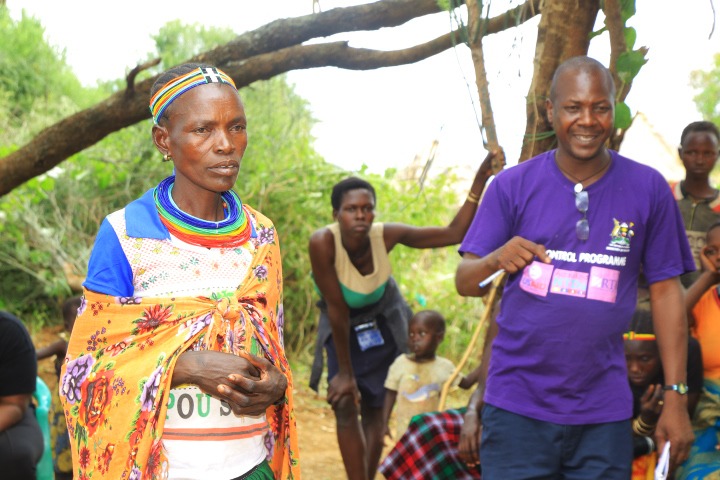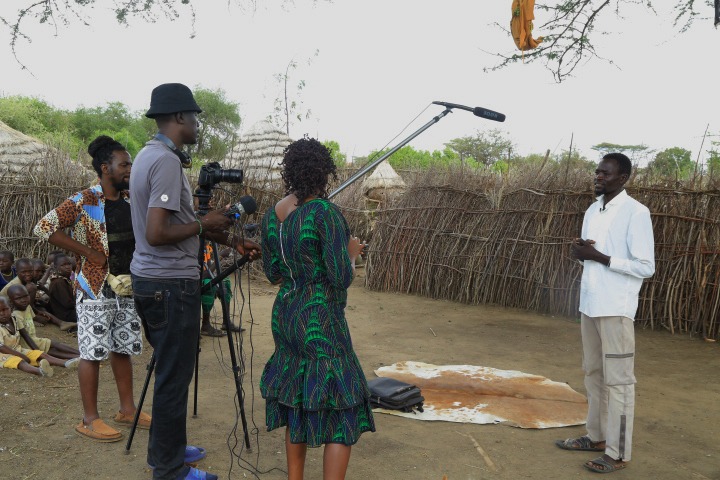Driving Equitable Change through the Power of Localization

Since WI-HER’s founding in 2011, we have challenged business as usual and reimagined what collaboration looks like. Through this intentionality, we have consistently prioritized principles of localization by taking into account the needs of communities at all stages of the programs we support. Through partnerships with individuals, communities, and stakeholders—including governments—we co-create throughout the design, implementation, and measurement phases of our interventions.
While both the small and large partners we support have the knowledge needed to design solutions, we provide them with the added skills, tools, and resources they need to unlock their potential and achieve greater agency to realize the benefits of their efforts. As such, our partners own the solutions they design, which leads to increased inclusiveness, effectiveness, and sustainability in all development efforts.
How WI-HER defines Localization
Our small but mighty and diverse team, living and working around the world, uses a local lens in all the work we do:
- Technical implementation and innovation, through innovative gender, equity, and social inclusion (GESI) solutions; community engagement and behavior change; and gender-based violence (GBV) prevention and response;
- Strategic assistance through strategy development and execution, research assessments, and continuous collaboration, learning, and improvement; and,
- Institutional support through customized training solutions, alongside coaching and positive workforce development, and GESI integration and mainstreaming.

To us, fostering community-led processes is at the core of localization. Over the years, this has been accomplished through the use of our innovative and results-oriented iDARE methodology, which values and optimizes the capacity of local actors, including local leaders and community members, as well as ministries and government officials, to jointly identify the issues that face their communities, co-develop solutions, and co-lead implementation and measurement of results. Our process for this support leverages a suite of tools and approaches that support continuous capacity development, whereby local stakeholders increasingly take the lead in innovative and locally relevant plans and solutions, resulting in more sustainable outcomes.
WI-HER’s iDARE™ methodology—developed by Founder and President Dr. Taroub Harb Farmand—combines the strengths of human-centered design and social behavior change to work with local partners in identifying the root causes of the development challenges they face and designing interventions based on their unique needs. By focusing on community-led development utilizing our iDARE methodology, our local partners create their own pathways to achieve their own vision of success or goals: they own and value the solutions they identify, create, and implement, thereby greatly increasing the likelihood of their adoption and sustainability.
The Role of Ethical Storytelling in Locally-Led Change
Since addressing the power dynamics in international development is critical to fostering localization, so too is considering the way we talk about our work. WI-HER addresses the power dynamics of storytelling by redefining how we tell the stories of our local partners. Our teams have signed an ethical storytelling pledge and invested in building relationships based on trust, mutual respect, and collaboration. In so doing, we are empathetic and compassionate about our story holder’s dignity and we respect their agency by supporting them to share their lived experiences and stories however they see fit. They determine if and when they want their stories to be shared.

Our teams value transparency and seek deep, informed consent during all engagement opportunities with our local partners. When we ensure that our partners are in the driver’s seat of interventions that includes how their stories and successes are told and shared with the world.
Localization in Action
When we talk about working locally, we mean it. Just a sampling of the role localization plays in our initiatives and work includes:
- In our neglected tropical disease (NTD) work, we strengthen the capacity of local actors, such as local governments, health facilities, and community health workers, as well as community-led behavior change teams (BCTs) comprised of community influencers, and village health teams to integrate gender equity and social inclusion (GESI) in their work. Through our partnerships, these local stakeholders identify and address the gaps and barriers related to mass drug administration (MDA) for NTDs and ensure that no one is left behind.
- We optimize the capacity of national trainers on GESI and related topics, then leverage this capacity in the application and institutionalization of GESI-integrated approaches at service delivery levels to ensure these approaches are sustainable and make sense for communities.
- In health system strengthening, we work within local health systems to identify and address barriers to care as they relate to gender, youth, and social inclusion while also institutionalizing community-led practices for various health areas like HIV, TB, GBV, family planning, and immunization.
- In gender-based violence (GBV) prevention and response, we optimize the capacity of local health workers, technical working groups, community-based organizations, and influencers to understand, integrate, and scale GESI principles in their work. At times, this involves supporting health workers in primary health centers on ways to improve their GBV reporting, documentation, and referrals for healthcare and non-medical services. Additionally, we play a critical role in strengthening the capacity of local organizations to support facility-based GBV response and referral pathways through service provider training, for example via a Grants Under Contract (GUC) mechanism.
- In maternal, newborn, and child health, we collaborate with health providers to understand drivers of service access and use challenges, such as low early antenatal care (ANC) attendance, and co-develop community engagement solutions to improve health outcomes.
- In environment conservation, we support a local organization in creating behavior change teams to promote the inclusion and decision-making power of women, youth, and other excluded groups in conservation activities. Additionally, we engage with communities to address links between environmental conservation and gender-based violence.
- In quality improvement (QI), we equip QI facilitators—individuals from national, regional, district, sub-district, and facility levels—with the knowledge and skills to cascade training in gender issues in healthcare service delivery, access, and outcomes to other facilities.
- In monitoring and evaluation, we conduct qualitative interviews and quantitative data collection and analysis to assess the effectiveness of sub-activities, including activities related to sustainable energy management, and develop tools, guides, and materials to support and guide local partners.
- In emergency response, we use participatory community engagement techniques to engage local stakeholders in service delivery design and implementation.
- Through institutional support, we support local organizations and agencies in the creation of solutions and training curricula related to workplace harassment prevention and response, as well as DEIA and leadership development. At times, this involves supporting organizations in the creation of safe feedback mechanisms to aid in the development of a safe workplace environment and culture.
With our depth and breadth of experience, we are uniquely positioned to bring our partners, local stakeholders, and communities together in a respectful way to collaborate and drive locally-led development and sustainable change. We have long cultivated these relationships and partnerships with organizations all over the world as a way to accelerate learning, locally-led development, and the sustainability of all activities. Localization and working with local partners—both large and small—are at the heart of what we do.